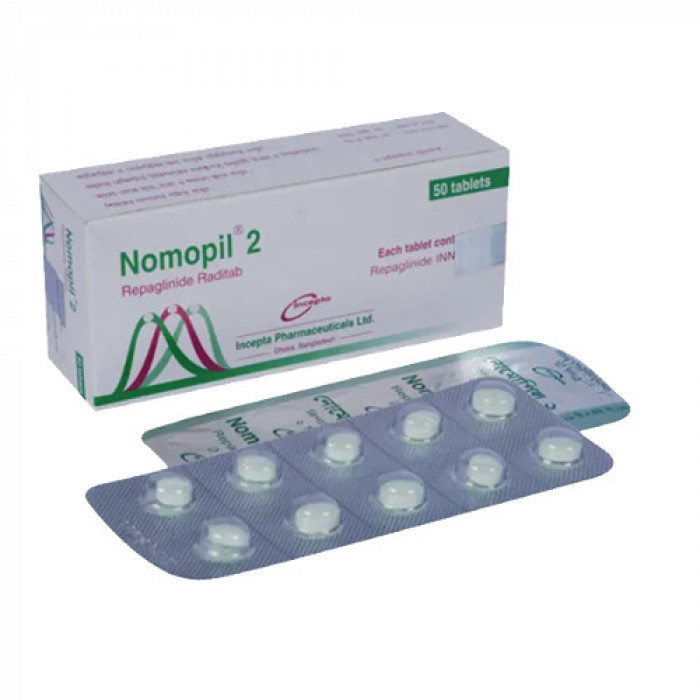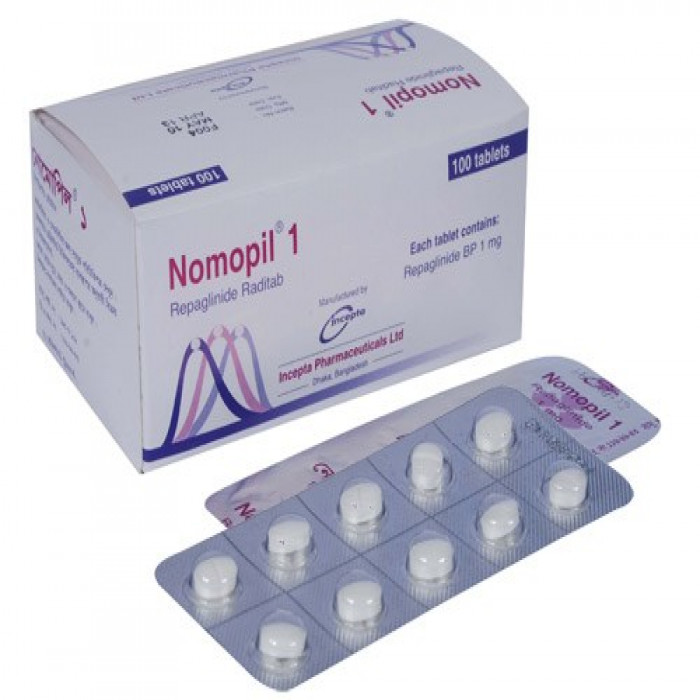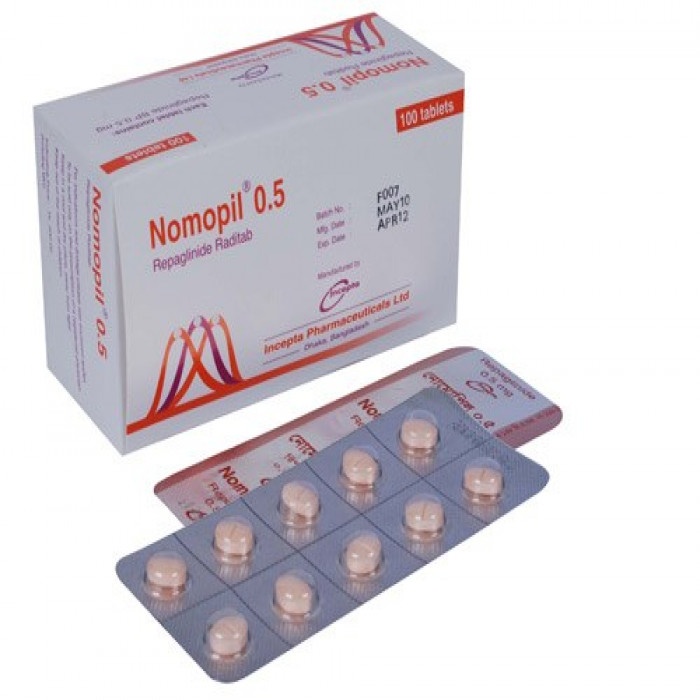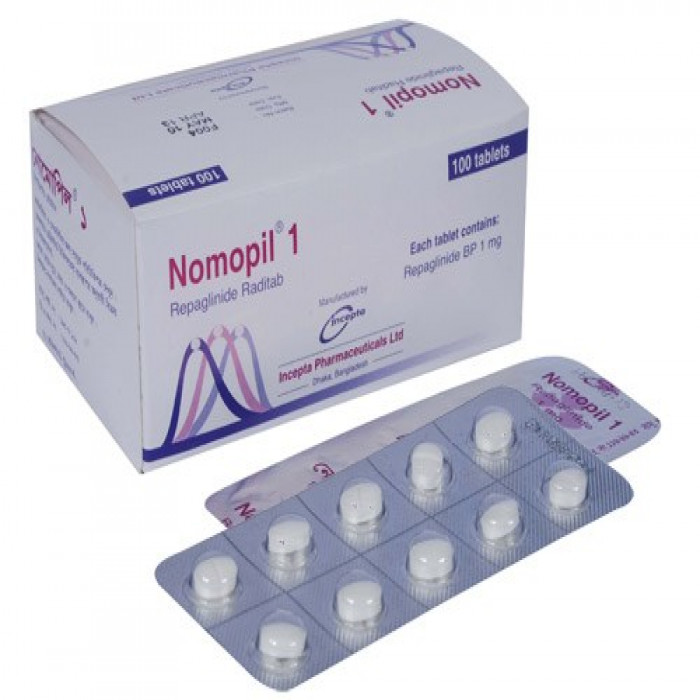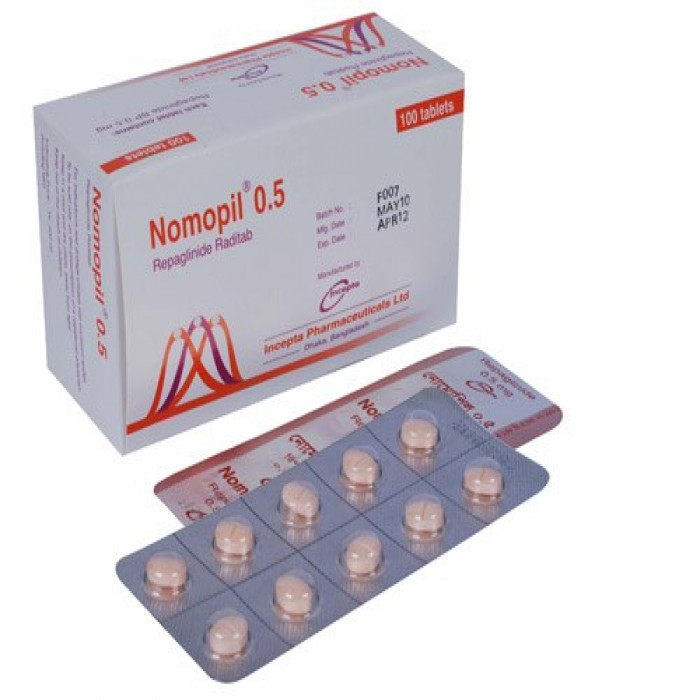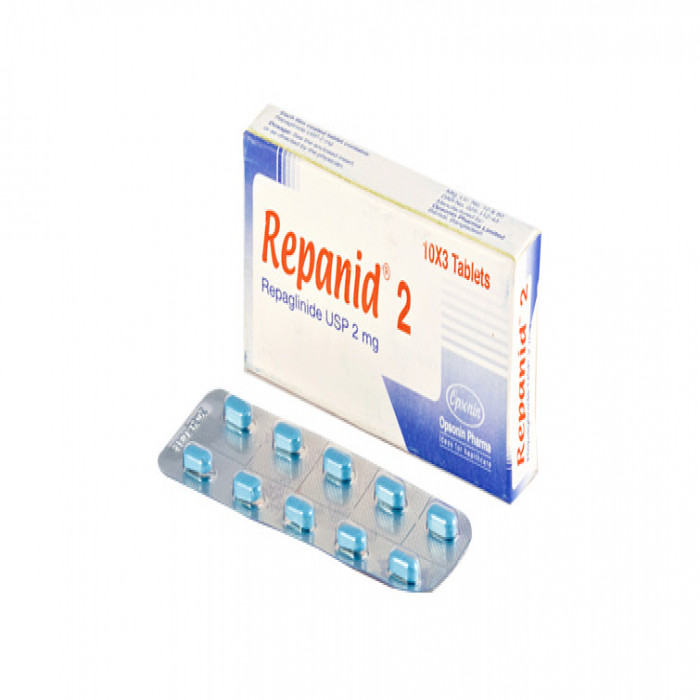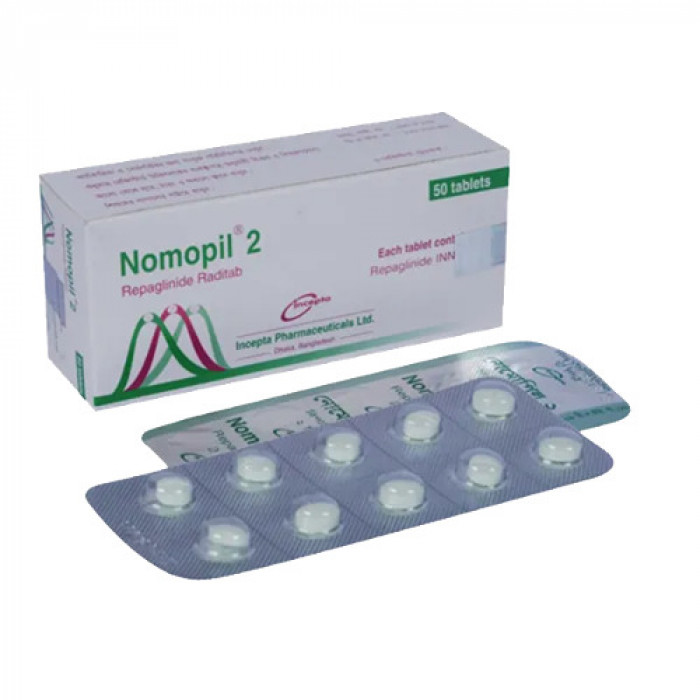
✔ 100% Authentic Product
👁️ Currently Viewing 1246
Tablet, Generic Name: Repaglinide 2 mg, Manufacturer: Incepta Pharmaceuticals Limited
Discount
Price: ৳ 47
MRP:
৳
50
6%
Off

100% Genuine Products, Guaranteed

Safe & Secure Payments, Always

Fast, Secure & Efficient Delivery

Proper Packaging
 Cash on Delivery - All over Bangladesh
Cash on Delivery - All over Bangladesh Regular Delivery - 12-24 Hours, Dhaka City* Charge Tk.39-59
Regular Delivery - 12-24 Hours, Dhaka City* Charge Tk.39-59 Regular Delivery - 24-48 Hours, Other Cities* Charge Tk.99-110
Regular Delivery - 24-48 Hours, Other Cities* Charge Tk.99-110
 ফ্রি ডেলিভারিঃ - ৯৯৯ টাকা+ অর্ডারে, ঢাকা
শহরে
ফ্রি ডেলিভারিঃ - ৯৯৯ টাকা+ অর্ডারে, ঢাকা
শহরে ফ্রি ডেলিভারিঃ - ২৯৯৯ টাকা+ অর্ডারে, ঢাকার
বাহিরে
ফ্রি ডেলিভারিঃ - ২৯৯৯ টাকা+ অর্ডারে, ঢাকার
বাহিরে
100% Genuine Products, Guaranteed
Safe & Secure Payments, Always
Fast, Secure & Efficient Delivery
Proper Packaging
 Cash on Delivery - All over Bangladesh
Cash on Delivery - All over Bangladesh Regular Delivery - 12-24 Hours, Dhaka City* Charge Tk.39-59
Regular Delivery - 12-24 Hours, Dhaka City* Charge Tk.39-59 Regular Delivery - 24-48 Hours, Other Cities* Charge Tk.99-110
Regular Delivery - 24-48 Hours, Other Cities* Charge Tk.99-110 ফ্রি ডেলিভারিঃ - ৯৯৯ টাকা+ অর্ডারে, ঢাকা
শহরে
ফ্রি ডেলিভারিঃ - ৯৯৯ টাকা+ অর্ডারে, ঢাকা
শহরে ফ্রি ডেলিভারিঃ - ২৯৯৯ টাকা+ অর্ডারে, ঢাকার
বাহিরে
ফ্রি ডেলিভারিঃ - ২৯৯৯ টাকা+ অর্ডারে, ঢাকার
বাহিরে
✅ Description:
Indications
In patients with type 2 diabetes mellitus (NIDDM) whose hyperglycemia cannot be controlled adequately by diet and exercise alone, repaglinide is used as an addition to diet and exercise to lower blood glucose. It's also approved for use with Metformin to help individuals with hyperglycemia who can't control their blood sugar with exercise, diet, or either Repaglinide or Metformin alone.
Pharmacology
Repaglinide binds to specific receptors in the cell membrane, causing ATP-dependent K+ channels to close and the cell membrane to depolarize. This results in Ca++ inflow, increased intracellular Ca++, and insulin secretion stimulation.
Dosage & Administration
For patients not previously treated or whose HbA1c is <8%, the starting dose should be 0.5 mg before each meal.
For patients previously treated with blood glucose-lowering drugs and whose HbA1c is >8%, the initial dose is 1 or 2 mg before each meal.
Repaglinide should be taken immediately or up to 30 minutes before each meal.
Dosage should be adjusted according to response at intervals of 1-2 weeks; up to 4 mg may be given as a single-dose, maximum 16 mg daily.
Contraindications
Diabetic ketoacidosis, with or without coma, is contraindicated in individuals using repaglinide.
Diabetes mellitus type 1 and a history of hypersensitivity to the medication or its inactive components.
Side Effects
Hypoglycemia and associated symptoms are the most common Repaglinide adverse effects. Upper respiratory infections, diarrhea, constipation, nausea, and vomiting are among the other symptoms. Rashes and urticaria are examples of hypersensitivity reactions.
Pregnancy & Lactation
There is no evidence of safety in pregnant women. Repaglinide should only be taken during pregnancy if it is absolutely necessary. Repaglinide is not known to be excreted in human milk. Because many medications are excreted in human milk and because Repaglinide can cause major adverse reactions in nursing infants, a choice should be made whether to stop breastfeeding or stop taking the drug, taking into account the drug's importance to the mother.
Precautions & Warnings
Affront ought to be substituted amid concurrent sickness (such as myocardial dead tissue, coma, disease, and injury) and amid surgery. All verbal blood glucose-lowering drugs are competent of creating hypoglycemia. Repaglinide ought to be managed with suppers to reduce the chance of hypoglycemia.
Storage Conditions
Do not store at temperatures above 30°C. Keep out of the reach of youngsters and away from light.
⚠️Disclaimer:
At ePharma, we’re committed to providing accurate and accessible health information. However, all content is intended for informational purposes only and should not replace medical advice from a qualified physician. Please consult your healthcare provider for personalized guidance. We aim to support, not substitute, the doctor-patient relationship.




